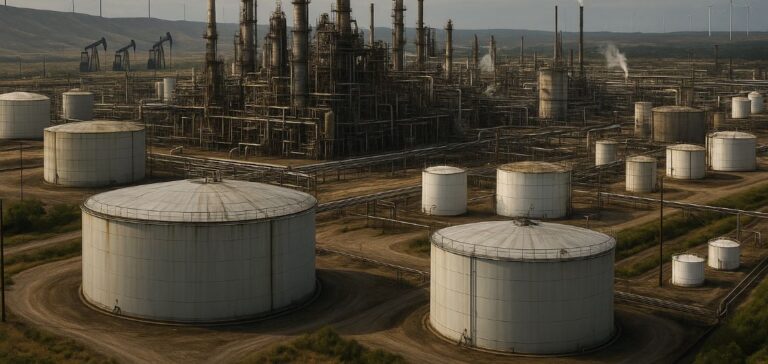The global oil sector is confronting major challenges as the current year reveals a contraction in exploration and production (E&P) spending. This reduction is taking place amid growing oversupply and trade tensions intensified by new tariff hikes between the United States and its major trading partners.
Global Oil Investments in Decline
The anticipated decrease in upstream global investments is primarily due to persistent oil oversupply. This situation has worsened following the recent announcement by the Organization of Petroleum Exporting Countries and its allies (OPEC+) to increase production quotas starting May 2025. The decision comes as newly imposed U.S. tariffs on essential materials for oil industries exacerbate production costs. Facing these uncertainties, oil companies are adopting a cautious stance, reducing their investment budgets.
Mixed Regional Performances
Despite this challenging global context, North America has shown relatively strong results, posting an annual revenue increase of 8%, driven mainly by the robust activity of the United States. In contrast, several international markets, notably Russia, Saudi Arabia, and Mexico, are experiencing significant downturns in oil activity. These regional difficulties have resulted in a 5% year-on-year decline in international revenues, highlighting a fragmented market where countries such as the United Arab Emirates, Kuwait, Argentina, and China continue to experience robust growth.
Tangible Impact of U.S. Tariffs
The increase in U.S. tariffs poses a major challenge for the sector, particularly affecting trade with China. The oil sector is significantly impacted by additional costs associated with imported raw materials intended for production systems. In response, international oil companies are intensifying efforts to optimize their supply chains to minimize financial impacts. Negotiations with customers are also underway to adjust contracts and pass these tariff increases onto final prices.
Digitalization and Revenue Diversification
Faced with these operational challenges, the oil industry is increasingly turning to digital services and artificial intelligence (AI) to enhance operational efficiency of existing installations. Investments in digitalization and cloud computing have become strategic for maintaining acceptable operational margins despite an unfavorable tariff environment. In parallel, the industry is expanding its portfolio into low-carbon activities, notably carbon capture and data center infrastructure, to diversify revenue streams.
These contextual factors invite sector players to continuously reassess their operational, financial, and technological strategies to remain competitive in a rapidly transforming market.





















